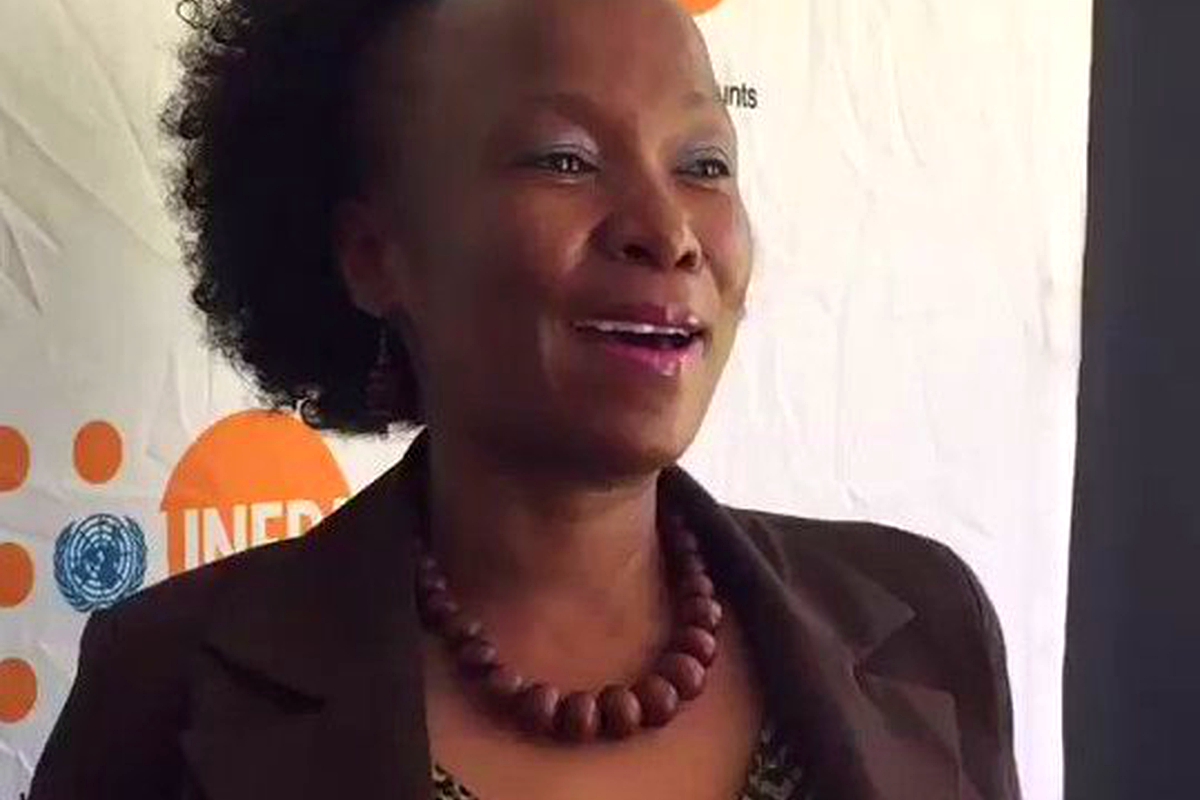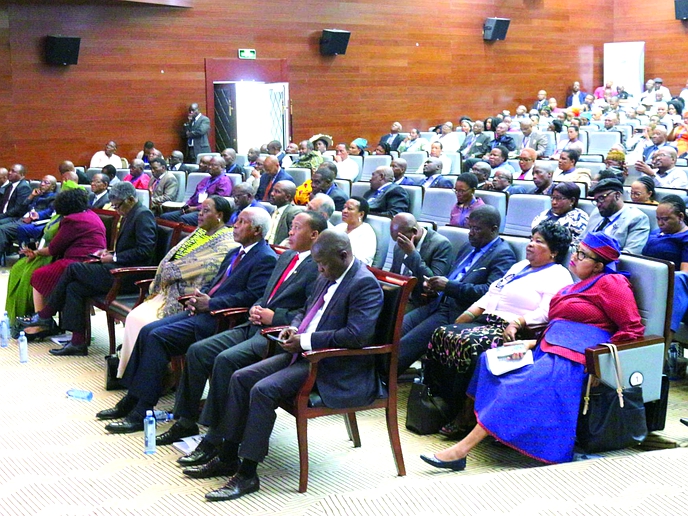In recent years, Lesotho has seen growing interest in the number of foreign investors interested in investing in the agricultural sector in Lesotho. More and more foreign investors are queuing to grab a few hundreds of hectares of arable land. These are no ordinary investors - they are prepared to invest millions of dollars in the country cultivating the largely ignored fields in the rural areas of Lesotho which for the past decade have largely been lying fallow due to the perennial drought coupled with government’s lack of innovative strategy to entice farmers to cultivate the land.
business
March 4, 2020
MALEFETSANE SOAI
5 min read
Changing face of agriculture in Lesotho

Member of Parliament Tsepang 'Matlhohonolofatso Mosena
The influx has been ignited by government resolution to open doors for foreign investors to plant medical cannabis in the country- a pioneering move on the continent.
In addition to this, other foreign companies like Strategic Food Resource (STRAFOR), a Singaporean company with business interests in countries like Madagascar and Guinea Bissau, arrived in Lesotho in 2019 and are currently planting maize and wheat in Machache, Nazareth on a 1 000 hectare of land belonging to over 600 local farmers and they are vying to plant 10 000 more nationwide on a 20-year lease agreement.
These companies are bringing the much needed job creation opportunities in rural Lesotho as well as transfer of critical set of skills that will be beneficial in the long run. Impressively, the job creation opportunities cut across all levels of society: from the semi-skilled to skilled labour.
Only 10% or less of Lesotho’s land is said to be arable according to the official reports. Thus, these investments are playing a critical role in saving the fast disappearing arable land: large tracts of arable land in Lesotho are being unscrupulously being converted to residential sites despite Lesotho’s Land Act of 2010 clearly stipulating procedures to be followed before arable land can to be converted into either a residential or commercial/business area.
One of the main challenges faced by many smallholder farmers in Africa is lack of capital to continue tilling the land. In the case of Lesotho, despite the government commitment to pour millions of Maloti into summer and winter ploughing seasons, year in, year out- yields have been declining with each passing year making Lesotho a regular feature in the annual list of countries needing urgent humanitarian assistance.
Enjoy our daily newsletter from today
Access exclusive newsletters, along with previews of new media releases.
To move away from this predicament, more and more African countries are inviting the private sector to partner with local farmers to bridge the funding gap. For example, this year in Zambia, African Green Resources, a private company and its partners, has partnered with local farmers to “…provide farm supplies and technology to farmers in exchange for grain”, (Lusaka Times).
In addition, the deal includes a 50 megawatt solar farm and irrigation dam and the target is 120 commercial farmers and 250 000 small and middle farmers.
The waves of change blowing in the agricultural sector should not be taken lightly because they affect the most neglected segment of society - a rural, smallholder farmer. As per the Lesotho 2010 Land Act, Section 6 (1) (a) persons who may hold title to land include “…a foreign enterprise for investment purposes, provided Basotho, whose land may be valued so that it may form part of the shareholding in such partnership, form at least 20% of the membership or shareholding of the enterprise”. These investment companies mostly use land on sub-leasehold but there is still a need for government to make concerted efforts to protect land owners- companies have to adhere to the promises made prior to investing. For example, one of the trailblazers Medigrow (a Canadian company that specialises in medical marijuana), is embroiled in a labour dispute with its workers - the owners of the land - a blemish that clouds an otherwise noble undertaking.
According to Pule Sello, whose family ploughs a couple of hectares of land at Nazareth, “foreign companies as well as local companies willing to invest in agriculture should be trustworthy and pay us what they promised us during the pitch and they should also be honest about the chemicals that they will use because if they deceive us, we will struggle to rehabilitate the land after they have left”.
Sello’s concern brings to surface a pertinent issue that is normally ignored when agreements of this nature are made: Environmental Impact Assessment Study. Intensity of soil usage due to heavy machinery and high-end chemicals is definitely going to affect the soil and ultimately the environment in the long run. Thus, government’s regulation should be firm without putting off potential investors.
Interestingly, there is a motion being proposed in parliament of Lesotho by the deputy leader of Movement for Economic Change and Member of Parliament, ’Matlhohonolofatso Mosena that the government should take strong measures to ensure that arable land is protected.
The motion reads as follows “That this honourble House resolves to urge the Government to undertake all possible measures to conserve and protect arable land which is being occupied for residential purposes, thus putting a strain to agricultural produce; and compromising the usage of such land for potential economic contribution, or the self-sufficiency of communities in feeding themselves”. It is encouraging to see parliamentarians making an effort to save arable land which is the sole hope of many of the rural poor in a country where unemployment and lack of business opportunities are rampant. In addition to this, the Lesotho Land Authority as a body has to get its house in order and make its presence felt given its huge constitutional mandate. Efficient land markets in countries that have been able conserve and secure their land (for either farming purposes or residential) rely solely on efficient land administration systems that enable and capacitate banks and other financial institutions to lend money or services to people with land.
In a nutshell, there are many changes brewing up in the agricultural sector that require joint intervention by all parties concerned: the landed farmers, business community and the government as the chief overseer of all the operations involved to work together towards resuscitating the waning interest in agriculture. Properly handled, agriculture will create the much needed job opportunities in Lesotho and ultimately an additional and reliable source of income for our cash-strapped Kingdom.
Tailored for you






